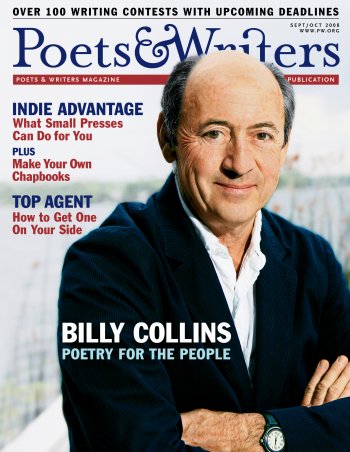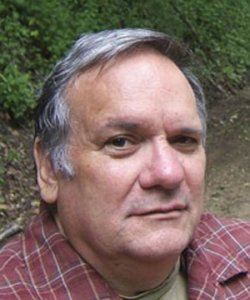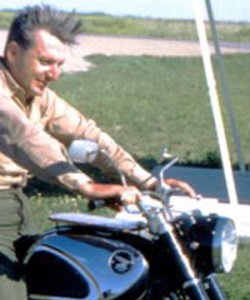
Billy Collins on what makes him one of America's best-known poets—plus our annual look at independent presses, which showcases six diverse book publishers and a rundown of ten presses looking for new work.
Jump to navigation Skip to content

Billy Collins on what makes him one of America's best-known poets—plus our annual look at independent presses, which showcases six diverse book publishers and a rundown of ten presses looking for new work.

The story of David Rhodes is punctuated by early successes and devastating losses, personal demons and unlikely angels, dogged determination and blind faith, and the next chapter begins with the triumphant return of a major American novelist after a thirty-year silence.

Known as a heavy-hitting agent willing to go to bat for her clients, Molly Friedrich discusses how an author should choose an agent, what she looks for in a manuscript, and what separates great agents from merely good ones.
Billy Collins has built a fan base most poets only dream of. What's his secret?
Profiles of Green Lantern Press, Flood Editions, and Academy Chicago
A look at the thirty-year-old letterpress publisher Adastra Press
Profiles of indie publishers Fairy Tale Review Press and Nightboat Books
A list of small presses looking for your work
Step-by-step instructions for creating a little book
Step-by-step instructions for making a fold-out book

Poet Chase Twichell talks about the decision to end her ten-year run as publisher and hand over her independent press to the nation’s largest poetry publisher, Copper Canyon Press.
Literary MagNet chronicles the start-ups and closures, successes and failures, anniversaries and accolades, changes of editorship and special issues—in short, the news and trends—of literary magazines in America. This issue's MagNet features Literary Rejections on Display, Rejection Collection, Fence, Virginia Quarterly Review, ZYZZYVA, and Atlas.
The best advice for how to produce good poetry or prose has always been the most simple—just sit down and write—but perhaps sitting isn't the answer after all.
Booksellers and readers alike tend to think of novels as belonging to one of two distinct categories—literary or genre fiction, high or low culture, elitist or democratic—but more and more of America's respected literary novelists are choosing to dip from the genre pot.
Small Press Points highlights the happenings of the small press players. This issue features Word Riot, Chiasmus Press, Future Tense Books, Fiction Collective 2, Marick Press, BOA Editions, Calamari Press, and 3rd Bed.
It's been a half century since G. P. Putnam's Sons published Lolita and brought the infamous novel to American readers three years after its explosive reception in Paris, and while the anniversary of the literary classic's stateside publication is met with a rather subdued celebration, Nabokov's masterpiece continues to incite strong reactions.

This month, to commemorate the fortieth anniversary of Robert Pirsig's legendary cross-country motorcycle trip, Knopf is publishing Zen and Now: On the Trail of Robert Pirsig and the Art of Motorcycle Maintenance by Mark Richardson, a journalist who retraced Pirsig's route, interviewed the reclusive author, and discovered the lasting value of a literary classic.
Page One features a sample of titles we think you'll want to explore. With this installment, we offer excerpts from Boring Boring Boring Boring Boring Boring Boring by Zach Plague and Demons in the Spring by Joe Meno.
The organizer of a reading series gives tips on how to create an ideal reading experience.
A profile of twin brothers Matthew Dickman and Michael Dickman, who both earned publishing contracts for their poetry collections in 2008.
A poet and fiction writer discusses the experience of writing her first book of nonfiction, her uncle's soldier story.